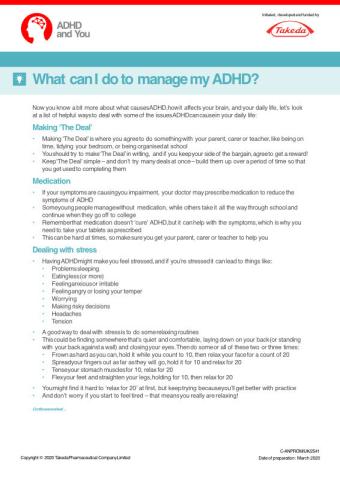What can I do to manage my ADHD?
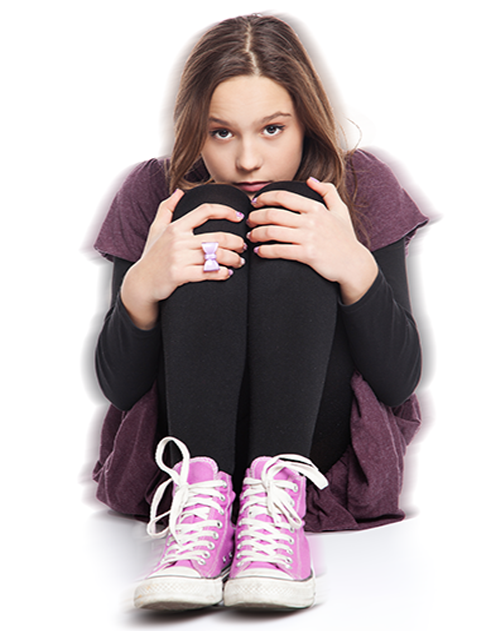 Now you know a bit more about what causes ADHD, how it affects your brain, and your daily life, let’s look at a list of helpful ways to deal with some of the issues ADHD can cause in your daily life.
Now you know a bit more about what causes ADHD, how it affects your brain, and your daily life, let’s look at a list of helpful ways to deal with some of the issues ADHD can cause in your daily life.
Making ‘The Deal’
- Making ‘The Deal’ is where you agree to do something with your parent, carer or teacher, like being on time, tidying your bedroom, or being organised at school
- You should try to make ‘The Deal’ in writing, and if you keep your side of the bargain, agree to get a reward!
- Keep ‘The Deal’ simple – and don’t try many deals at once – build them up over a period of time so that you get used to completing them
Medication
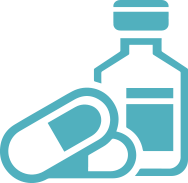
- If your symptoms are causing you impairment, your doctor may prescribe medication to reduce the symptoms of ADHD
- Some young people manage without medication, while others take it all the way through school and continue when they go off to college
- Remember that medication doesn’t ‘cure’ ADHD, but it can help with the symptoms, which is why you need to take your tablets as prescribed
- This can be hard at times, so make sure you get your parent, carer or teacher to help you
Dealing with stress
 Having ADHD might make you feel stressed, and if you’re stressed it can lead to things like:
Having ADHD might make you feel stressed, and if you’re stressed it can lead to things like:
- Problems sleeping
- Eating less (or more)
- Feeling anxious or irritable
- Feeling angry or losing your temper
- Worrying
- Making risky decisions
- Headaches
- Tension
A good way to deal with stress is to do some relaxing routines
- This could be finding somewhere that’s quiet and comfortable, laying down on your back (or standing with your back against a wall) and closing your eyes. Then do some or all of these two or three times:
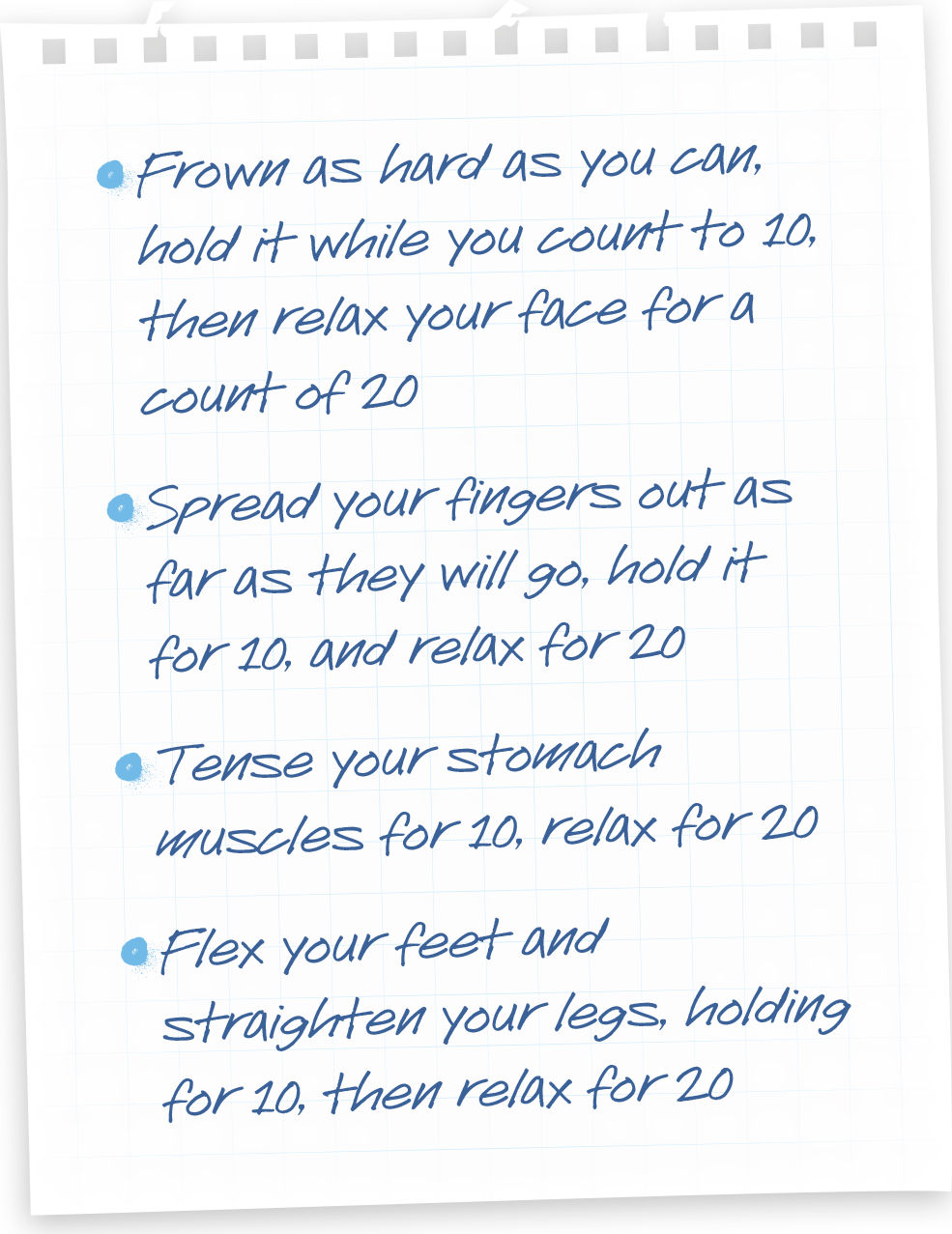
- You might find it hard to ‘relax for 20’ at first, but keep trying because you’ll get better with practice
- And don’t worry if you start to feel tired – that means you really are relaxing!
Getting organised
- Routines, checklists and timetables are a great way to help with some of the chaotic characteristics of your ADHD
- Your parent or carer may set up some routines, checklists or timetables for you, which can help you stay more organised, and help with what you do every day
- If you write things down, it can help you remember better
- For instance, if you write down what you need for school, or have your school timetable next to your bed, you’re less likely to forget stuff
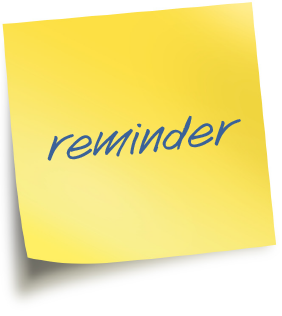 Sticky notes help as well, but not too many, and make sure you write neatly!
Sticky notes help as well, but not too many, and make sure you write neatly!
- Why not include a routine as part of ‘The Deal’ and agree a reward for sticking to it!
Sleep
- Do you ever feel like you can’t switch off at night?
- People with ADHD sometimes find it difficult to get to sleep, or to get enough quality sleep, and this can make your symptoms worse
- Being tired all the time isn’t fun and worrying about it can make things worse!
- Try these things to help you get a better night’s sleep:
- Do some sport or exercise because this can really help make you tired
- Keep your routines and checklists on a sheet of paper next to your bed, and have a read through before you switch off the lights, so you aren’t worrying about things you might have forgotten
- Go to bed a bit earlier, and do some of the stress-beater exercises
 Did you know?
Did you know?
- Better sleep can improve your concentration at school
- Half-an-hour more sleep can improve your school performance
- More sleep can reduce your ADHD symptoms
Resource for download
Useful Links
Patient support organisations
- ADHD Foundation – Young people – https://adhdfoundation.org.uk/
- Young Minds – ADHD and mental health – https://www.youngminds.org.uk/parent/a-z-guide/adhd/
- ADHD Solutions – https://www.adhdsolutions.org/
- The National Attention Deficit Information and Support Service (ADDISS) – https://www.addiss.co.uk
- Scottish ADHD coalition – https://www.scottishadhdcoalition.org
Professional organisations
- National Health Service – Overview ADHD – https://www.nhs.uk/conditions/attention-deficit-hyperactivity-disorder-adhd/
- National Institute for Health and Care Excellence (NICE) guideline NG87 – Information for the public – https://www.nice.org.uk/guidance/ng87/informationforpublic
You are now leaving www.adhdandyou.co.uk. You will be re-directed to an external website. Takeda accepts no responsibilty for the content of other websites.
